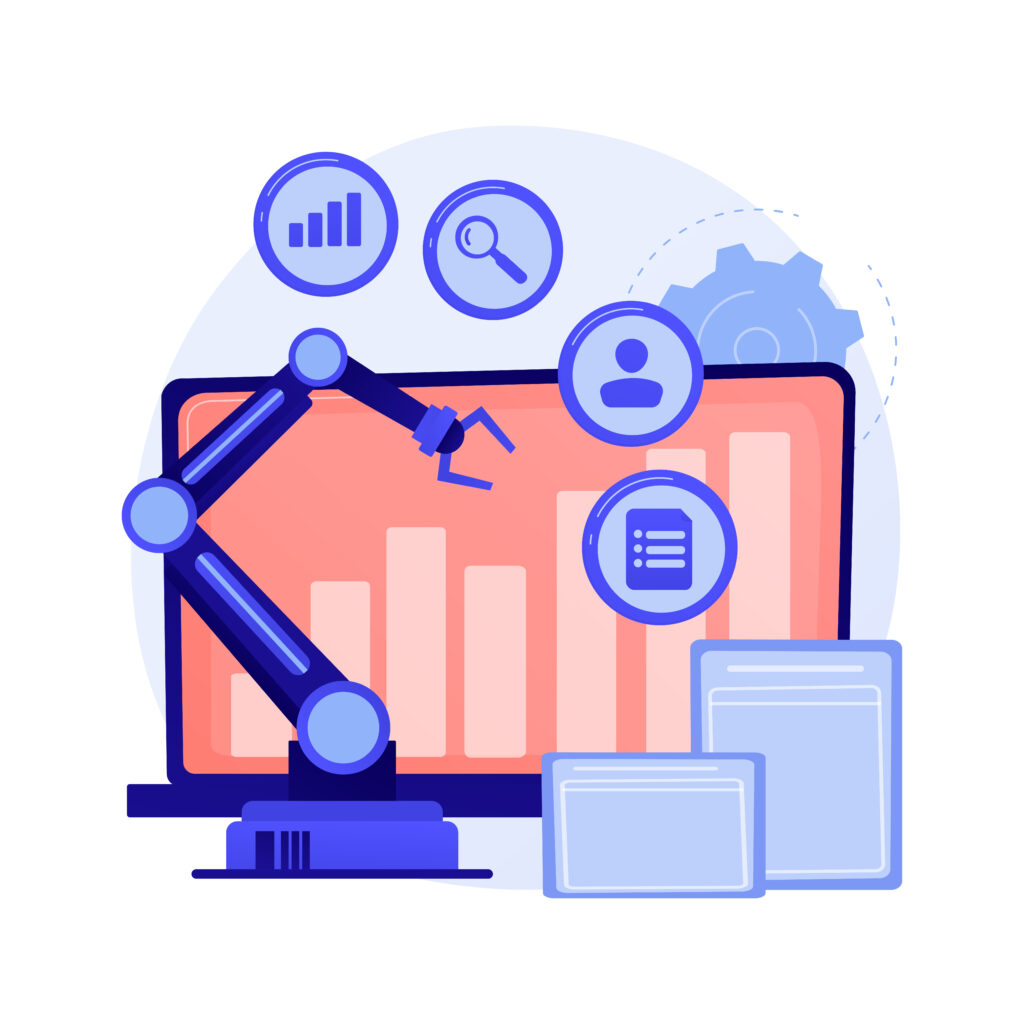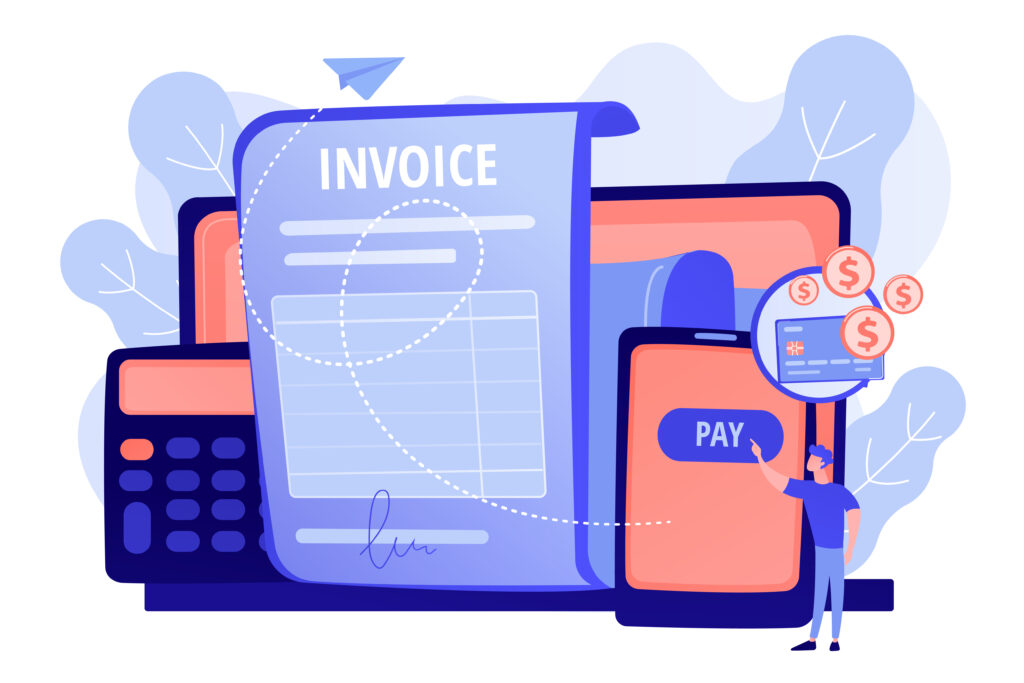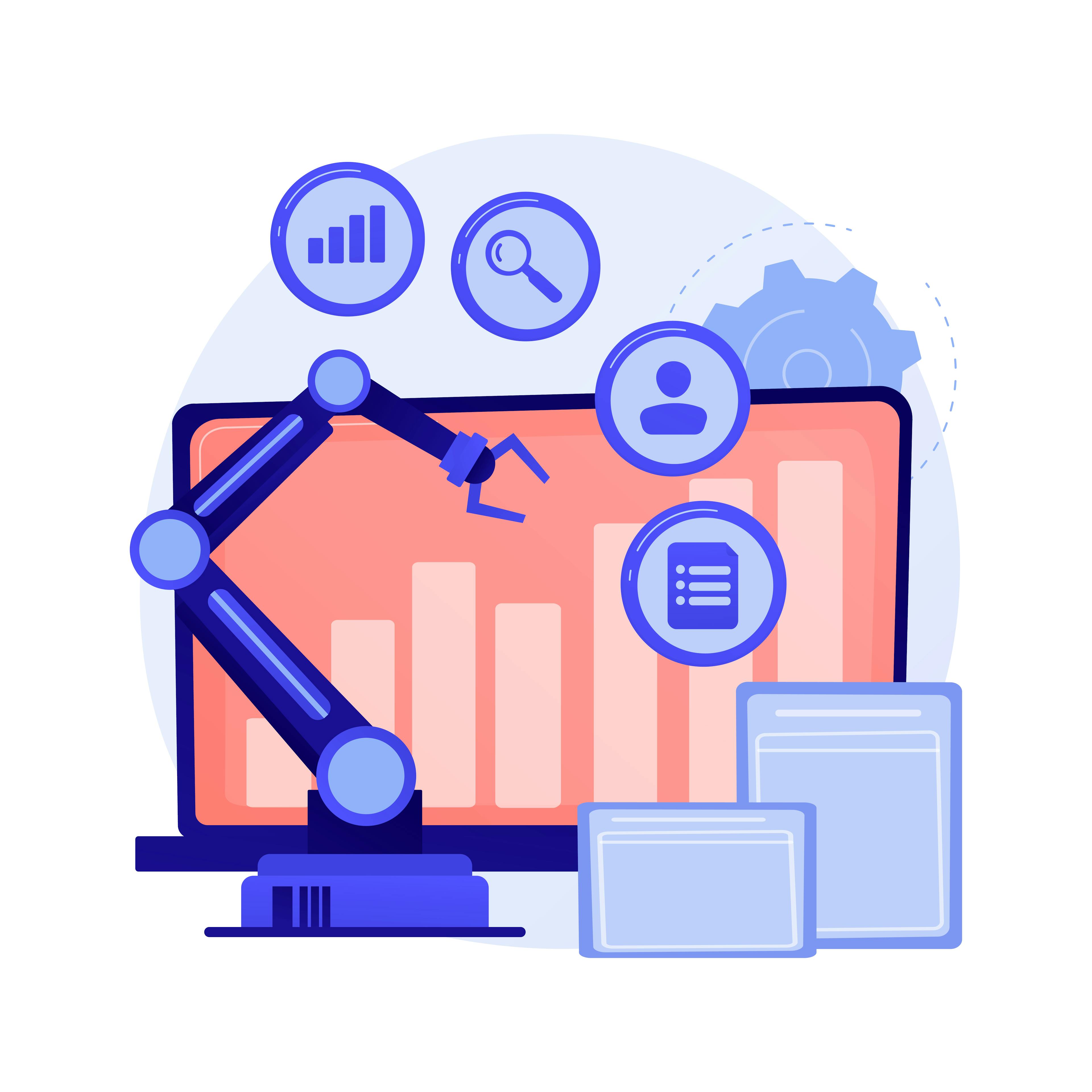These days, APIs are everywhere – they help us build complex automation solutions by stitching together applications built by different providers from all corners of the globe. An API (or Application Programming Interface) is a software intermediary allowing these applications to exchange information in a standardised, uniform format – like a universal language all speak. As our world rapidly moves towards automation, APIs have become crucial in ensuring data flow between systems, regardless of their creator. And the best part about it is that it happens without human involvement. Let’s dig into some examples of how APIs help us in business automation.

Building entirely new software solutions
As they say – if something is good for everything, it is good for nothing. The same applies to software. Instead of developing all of the functionality of your new software solution in-house, you can harness the power of APIs to combine the best-in-class components developed by leading subject matter experts, using APIs and build your software solution just like a LEGO set – each component doing what it does best and data flowing between them via an API. This saves time and money and significantly reduces time-to-market, enabling you to start earning money considerably faster. You can read about our take on the “build vs. buy” discussion in a blog post here.
CRM + Email marketing
A typical use case for APIs is to link the customer data in your CRM to an email marketing platform. This enables you to build complex, trigger-based email marketing sequences to get in touch with your customers at the right time, with the correct messaging to push them further down your sales funnel.

E-commerce
A typical e-commerce transaction relies on many components. In addition to the transaction itself – several additional components are needed to complete the sale, at the same time providing the customer with a pleasant shopping experience. When completing your purchase, stocks are checked, sales documentation like invoices and packing slips are created and emailed, transportation is booked, and accounting procedures are followed. All of this is enabled by using API-s that make the entire process seamless and invisible to the naked eye.
Payment gateways
Managing payments is a natural part of any e-commerce venture. Payment gateways, integrated with your e-commerce platform via an API, offer a cost-efficient, bolt-on solution to managing incoming payments. This allows the e-commerce vendor to focus on their core business, all while the payment solutions provider handles all payment-related issues. Integrating the two via an API helps you ensure payments are monitored, data on payments is sent to the CRM and goods are only released when payments have been confirmed.

Transportation
With e-commerce having become the norm over the past pandemic years, the weight in product development has fallen on goods being easy to transport. Parcels, both small and large, travel between countries and continents in exponentially rising numbers. The shipping supply chain, however, is extremely fragmented, with goods moving between continents in containers, from there on in trucks or trains, and parcel robots could handle the last-mile delivery. Combining all these different modes of transport relies on APIs for the shipping data to be exchanged between many transportation providers, simultaneously enabling parcel tracking, regardless of where the package is.
As you can see, APIs form the nervous system for many of the business processes we use daily – hidden from plain view but working 24/7. From building software out of best-in-class dedicated components to order handling to transportation – APIs make sure that data flows freely and all parties involved have the correct information needed to carry out their part in business processes.

